100 Film Favorites – #45: How the Grinch Stole Christmas!
(1966, Chuck Jones)
“The Whos down in Whoville liked Christmas a lot,
But the Grinch, who lived just north of Whoville, did not.”
In an impressive display of concision, the opening lines of today’s film introduce the setting, the characters, and the central conflict of the story. A single couplet of anapestic tetrameter and the stage is set for one of the most iconic Christmas tales of the 20th century.
This is another selection which is technically a half-hour television special rather than a feature film. Oh well. I think it’ll balance out in the end. You’ll see what I mean come post #34.
Like The Wizard of Oz, there’s a good chance the majority of you have already seen this, so I’ll try to keep the play-by-play brief: The Grinch, an unspecified species of grouchy green creature, lives atop a rocky precipice overlooking the idyllic hamlet of Whoville. Every year, the Grinch dreads the ruckus caused by the Whos’ Yuletide revelry, as each Christmas the residents of Whoville “bang their gardinkas,” “slang their sloo-slunkas,” and “play noisy games like zoo-zizzer-karzay, a roller-skate type of lacrosse and croquet.”
The Whos’ jubilation invariably results in “ear-splitting noises de luxe,” and the Grinch decides it must be stopped. He “gets a wonderful, awful idea” and plans to eliminate Christmas by stealing every last material trace of its celebration. He knits himself a Santa Claus costume, dresses his dog Max as a makeshift reindeer, and descends from his mountain home into the town. Breaking into every Who-household, the Grinch absconds with all manner of holiday trappings, stealing everything from “pantookas” to “Who Hash,” and leaving nothing behind but “a crumb that was even too small for a mouse.” Scenes of Grinch-larceny are accompanied by verses of “You’re a Mean One, Mr. Grinch,” quite possibly the most eloquent condemnation of a “crooked, jerky jockey” in modern songwriting.
Though Cindy-Lou Who, a child “not more than two,” catches the Grinch mid-thievery, he persists unswayed in his Christmas heist. He piles all of his takings on a dogsled and goads Max to drag the load “10,000 feet up, up the side of Mount Crumpet,” from the top of which he intends to hurl the Who’s possessions into a yawning chasm. Before he can give the old heave-ho, however, dawn breaks. The Whos celebrate as before, singing in the morning sunlight, even “without any presents at all.”
The Grinch, “with his Grinch-feet ice-cold in the snow,” is perplexed. Musing that “it came without ribbons, it came without tags, it came without packages, boxes, or bags,” the Grinch begins to realize that maybe Christmas “doesn’t come from a store. Maybe Christmas, perhaps, means a little bit more.” Though the sled slides perilously close to plummeting over the edge, the Grinch’s previously shriveled heart grows three sizes, and he “finds the strength of ten Grinches, plus two!” He heaves the laden sled onto his shoulders and brings back the Whos’ Christmas accoutrements, “cheerily blowing ‘Hoo-hoo!’ on his trumpet” all the while. The reformed Grinch is invited to join the festivities, “and he, he himself, the Grinch, carve(s) the roast beast.”
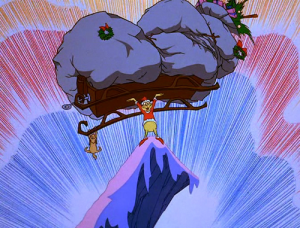
Word Problem: If it takes 12 Grinch-strengths to lift the sled, what is the approximate weight of Christmas?
As you can probably tell, I’ve watched this one a lot. I’m reasonably confident I could recite it from scratch . I’ve said it before, but I’m a fairly unabashed Dr. Seuss fan. Few poets have matched his zest for unusual wordplay, before or since, and his works, though light and humorous in tone, often address serious topics. In The Grinch, Seuss reminds us that there’s more to Christmas than its commercial trappings (the same message espoused in A Charlie Brown Christmas, albeit far less subtly in that case). The rhyme and rhythm give the story a driving feeling and add to its memorable quality. How the Grinch Stole Christmas! is unquestionably a holiday classic.
Tidbits:
-The special is narrated (and the Grinch voiced) by horror legend Boris Karloff, best known for his roles as the monster in 1931’s “Frankenstein” and 1932’s “The Mummy.” The Grinch was one of Karloff’s last roles – he was nearly 80 years old.
-The distinctive bass vocals on “You’re a Mean One, Mr. Grinch,” often erroneously credited to Boris Karloff as well, were actually performed by Thurl Ravenscroft. Longtime BTMN readers should be no stranger to the name: Along with featuring prominently in many music recordings of the 60s (particularly for multiple Disney theme park attractions), Thurl Ravenscroft also originated the roll of Frosted Flakes mascot Tony the Tiger. There’s a lot of good voice actors out there, but only a handful are truly GRRREAT!
-The special was directed by Chuck Jones, who directed many of the classic Looney Tunes cartoons.
–How the Grinch Stole Christmas! is also the first (and by far the most well known) of a series of similarly animated TV specials based on Dr. Seuss’ work produced throughout the 60s and 70s, and into the 80s. These include not only adaptations of books including The Cat in the Hat, The Lorax, The Sneetches, and The Butter Battle Book, but also sequels such as Halloween is Grinch Night, which was featured in October’s Creepy Classic Countdown. Some were even created by Seuss specifically for television, including the bizarre Hoober-Bloob Highway and Pontoffel Pock, Where are You?
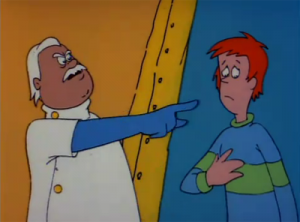
Pontoffel Pock, the rather Fry-like redhead protagonist, is fired from his factory job for “pulling the Pushum and pushing the Pullum.”
-While this abundance of TV specials suggests Dr. Seuss wasn’t opposed to branching out into new media or monetizing his work…I really don’t care for the live-action “Grinch” adaptation, and I don’t think he would either. It’s crass, and adds unnecessary back-story to pad out a feature length. Worst of all, the film muddies the story’s message by making the Whos unlikeable through their garish consumerism. As I read it, the point of the book is that those who truly have the “Christmas spirit” enjoy the holiday for more than just the material aspects of the season. In the book, this is something the Whos already know, and that the curmudgeonly Grinch must learn. In the live-action film, it’s the selfish, materialistic Whos who need to learn that lesson, and the Grinch seems more justified in his attack on them. It just leaves a sour taste in my mouth all around.
As far as I’m concerned, stick with the animated original. As The 5,000 Fingers of Dr. T can attest, if you want a good live-action film which captures the essence of a Dr. Seuss story, you need to have Dr. Seuss make it himself. Too bad he’s dead.
Too bad.
—
Brian Terrill is the host of television show Count Gauntly’s Horrors from the Public Domain. You can keep up with Brian’s 100 Film Favorites countdown here.


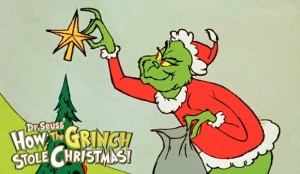
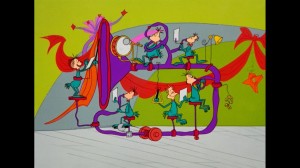
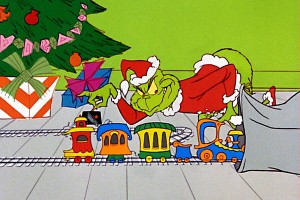
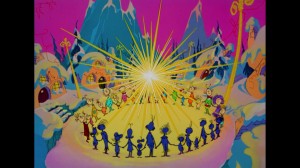
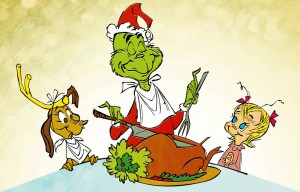
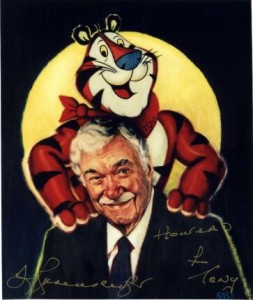
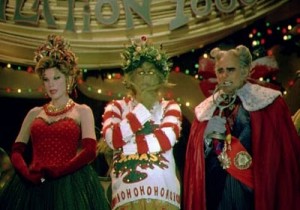




Two years later…not sure if you or whoever will see this comment, but I just wanted to say, “It’s about time someone called out the film adaptation out on what it really was. You may be a fan of Hollywood, but personally, I believe that they take too much liberty and distorting the message of the author, or more aptly put, the creator. I don’t know if you will agree with me or not, but after considering How The Grinch Stole Christmas, take a look at the moved about Moses. I’m not asking you to agree with the source or even believe the source. All I’m saying is READ the source and then watch the movie. Sure I get “creative liberty”, but what they do for the sake of the almighty Rating and almighty $$$$ is to twist, a.k.a. pervert the original story into something they feel more “popcorn worthy”.
So while no one else chimed in – I totally agree with you and added another movie to your point.
Merry Christmas!
Merry Christmas right back at you!
Thanks for reading and commenting. I’m curious: which Moses movie are you referring to? I actually quite like the 1956 deMille adaptation (actually, if you click through this series of reviews you’ll find it), and I thought Dreamworks’ “Prince of Egypt” was also well-made. But I haven’t yet seen the recent “Exodus” film starring Christian Bale.
How do you feel these movies distort the original story?